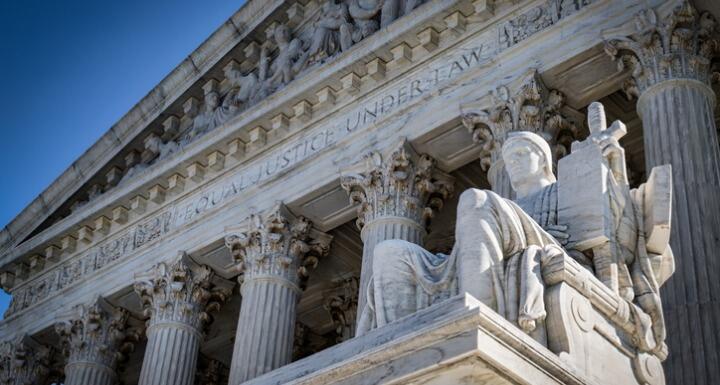In Trump v. CASA, the Supreme Court significantly narrowed federal courts’ power to issue “universal” or “nationwide” injunctions—broad orders that bar the government from enforcing a policy against anyone, not just the parties before the court.
For now, the decision likely won’t impact most businesses: the types of injunctions discussed in CASA typically don’t affect private industry directly.
But the decision’s logic could pave the way for a much bigger shift: a potential challenge to nationwide vacatur under the Administrative Procedure Act (APA)—a remedy businesses routinely rely on to strike down a whole raft of unlawful agency actions.
What Is the APA—and What Is Nationwide Vacatur?
The Administrative Procedure Act is the federal statute that governs how agencies create, implement, and justify regulations. It also gives courts the power to review agency actions and “hold unlawful and set aside” those that are arbitrary, exceed statutory authority, or violate procedural rules.
That “set aside” language is what enables nationwide vacatur. When a court vacates a rule under the APA, it isn’t just rendered unenforceable against the plaintiffs—it’s removed from the books entirely. And because most federal rules apply across all 50 states, their vacatur has nationwide consequences by design.
Vacatur under the APA is how businesses and other entities have successfully challenged some of the most consequential regulations in recent years. Courts have used it to:
- Strike down OSHA’s COVID-19 vaccine mandate (NFIB v. Dep’t of Labor),
- Vacate a Federal Highway Administration rule that would have imposed stricter emissions targets (Kentucky v. FHA), and
- Block the Biden administration’s near-total ban on non-compete agreements (Ryan LLC v. FTC).
For regulated businesses, APA vacatur is a vital tool to eliminate unlawful rules without each business having to bring separate individual challenges.
Why Vacatur and Injunctions Aren’t the Same Thing
Though they can look similar, nationwide injunctions and nationwide vacatur serve very different purposes and affect different interests.
In practice, injunctions are typically used to protect individual rights, blocking government policies from being enforced against specific people. When issued on a universal basis, they tend to arise in cases involving immigration, religious liberty, or other personal constitutional claims, typically, not in contexts that affect businesses directly.
Vacatur, on the other hand, allows courts to set aside unlawful agency rules altogether. That remedy doesn’t just protect the parties—it erases the rule itself. And because federal agencies usually regulate industries, not individuals, vacatur directly impacts businesses. It’s the tool companies rely on to eliminate unlawful rules in one shot, rather than fighting them piecemeal.
In Trump v. CASA, the Court Didn’t Touch Vacatur—But It Might Someday
The Court in Trump v. CASA was careful to explain that it wasn’t ruling on APA vacatur. But its broader reasoning suggests that the remedy could be next in line.
The majority opinion emphasized that federal courts’ equitable powers are rooted in historical practice, and that “universal” relief—like nationwide injunctions—had no analog in 1789, when Congress passed the Judiciary Act. Some legal scholars have speculated that the same historical logic could be used to argue that APA vacatur, at least as applied nationwide, is also suspect under the federal Constitution.
If so, the legal ground beneath this critical administrative remedy may be starting to shift.
Why It Matters for Businesses
If nationwide vacatur is declared unconstitutional, the impact on businesses would be immediate and far-reaching. Without it, companies could face a regulatory patchwork—where a rule like 2024’s attempted noncompete ban is struck down in one jurisdiction but still enforceable in others. That fragmentation would:
- Increase compliance costs,
- Heightened legal uncertainty,
- And force businesses to challenge unlawful rules individually, state by state, or circuit by circuit.
Worse still, it would strip away one of the few remedies that allow businesses to efficiently challenge executive overreach with national effect.
Bottom Line
For now, nationwide vacatur under the APA is still available, and it remains one of the most powerful tools businesses have for pushing back against unlawful federal regulation. However, Trump v. CASA signals that the Court is growing skeptical of broad, system-wide judicial remedies. If APA vacatur ends up on the chopping block, businesses could be left without a clear way to invalidate harmful rules at scale.
Stay tuned. We’ll be watching this closely.
If you have questions about how this ruling may affect your organization, please contact us.








